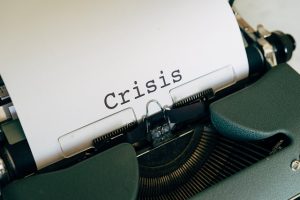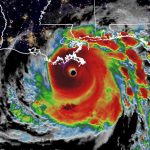NJSNA President’s Message
 For months, there has been a reaction by society to the COVID-19 virus. Amid this health crisis, nurses are at the center. According to Pender (2020), promotion of health assumes individuals want to be healthy, environments and people are complex, the presence of professionals, including nurses, and change in behavior and health are in a constant balancing act.
For months, there has been a reaction by society to the COVID-19 virus. Amid this health crisis, nurses are at the center. According to Pender (2020), promotion of health assumes individuals want to be healthy, environments and people are complex, the presence of professionals, including nurses, and change in behavior and health are in a constant balancing act.
Throughout the pandemic, our government has flexed a public health muscle by providing televised updates, mandating mask wearing and physical distancing, and, most recently, orchestrated mega-vaccination clinics for emergency use vaccines. All the while, at the center of the efforts to combat the effects and fatality of the virus were nurses. Nurses began creating paths of survival for themselves and their loved ones, in ways similar to the general population. We masked up and took care to reduce exposure. Yet nurses, as with members of the general population, tested positive for the virus, reported sick with COVID, recovered suffering with long-hauler sequelae, and some have died.
At this time, we know employers are hiring travel nurses with extravagant bonuses. Job boards are populated with open positions. The statistics of new nurses staying in the profession within a few years are not good. The overall dealing with the life and death situations are a strain on mental health of these specialized, highly trained and educated healthcare professionals.
In the discussion to mandate vaccinations and with reports of low vaccination rates in some counties risking continued virus-related illness and death, nurses are having additional discussions that are lacking in the general population: How many hours of overtime can one nurse work? With as many as 1 in 3 new nurses leaving nursing within the first two years (Robert Wood Johnson Foundation, 2014), how many new nurses will leave in their first few years because of COVID? How many of the age 50+ year old nurses will choose retirement and leave the workforce noting 49% of nurses licensed in New Jersey are between 46 and 65 years old (New Jersey Collaborating Center for Nursing, 2021)? How many nurses leaving the profession are too many? Nurses, feeling the stresses of an already identified nursing shortage, are wondering if there may come a time when hospital beds will be empty, not for the lack of patients to fill them, but for the lack of nurses to staff them.
Nurses have shared many concerns, such as if vaccinated, will they be denied PPE, is there sufficient PPE supply? What if their employer fires those who are not vaccinated? I have also heard from nurses who have worked overtime for the lack of oncoming staff, knowing if they left, they would leave their colleagues without recourse. Nurses are being told “everyone knows the situation and do the best you can.” Under the state of emergency, nurse educators were at the bedside responding to gaps in knowledge as COVID-19 was updated constantly and rolled out in real time. Ask a nurse who has been “floated” to another area of practice outside their place of hire based on increased patient care need, the responses are varied and hardly consistent in getting any orientation. Dare I say, we still hear “a nurse is a nurse.” While tenets and basics of nursing practice hardly answer to our vow of the Code of Ethics, nurses will tell you they respond from the perspective of the unit who is “short staffed” not wanting to be caught in situation where they wonder at what point are they potentially “abandoning’ patients (an unlawful act when requirements are met), and ‘if not me then who?” Where does a line get crossed when a nurse says, “No,” for the safety of their practice and patients they care for?
If there was responsibility to any one entity like health care administrators, the Department of Health, the Governor, our legislators, it is a shared responsibility. In a timeline of ability to react or be proactive in an emergency, there are legislators and government officials who have recognized challenges and utilized emergency orders. Under such conditions the importance and outstanding service of nurses, along with our entire medical teams and professionals, is recognized. Within the policies and procedures of employers, decisions were made at the corporate level. All these entities, like most issues and challenges of healthcare, do not just occur because of a pandemic. With many nurses elevating to ranks where decisions that affect health care and nursing occur, a vast number of nurses say they feel left out of, and in fact not respected in such circles.
There is no simple answer. But there is reality and with the present state of health care in New Jersey, and during a continuing health crisis, conversations within the nursing profession are centered around creativity, skill, education, and leadership to respond to the human condition, emergency or not, and this leadership is through “vision, trust and respect” (Milstead, 2008, p.11). In closing, the issue remains. Will there come a time when there will not be enough nurses to care for patients in a safe and effective manner?
Mary Ellen Levine, DNP MSN RN CHPN
NJSNA President
References
Milstead, J. (2008). Health policy and politics: A nurse’s guide. Burlington, MA: Jones and Barlett.
New Jersey Collaborating Center for Nursing. (2021). Nursing data and analysis. Retrieved from https://www.njccn.org/wp-content/uploads/2021/03/Data-Report-2021.pdf
Nursing Theory. (2020). Pender’s health promotion model. Retrieved from https://nursing-theory.org/theories-and-models/pender-health-promotion-model.php
Robert Wood Johnson Foundation. (2014). Nearly one in five new nurses leaves first job within a year, according to survey of newly licensed registered nurses. Retrieved from https://www.rwjf.org/en/library/articles-and-news/2014/09/nearly-one-in-five-new-nurses-leave-first-job-within-a-year–acc.html




